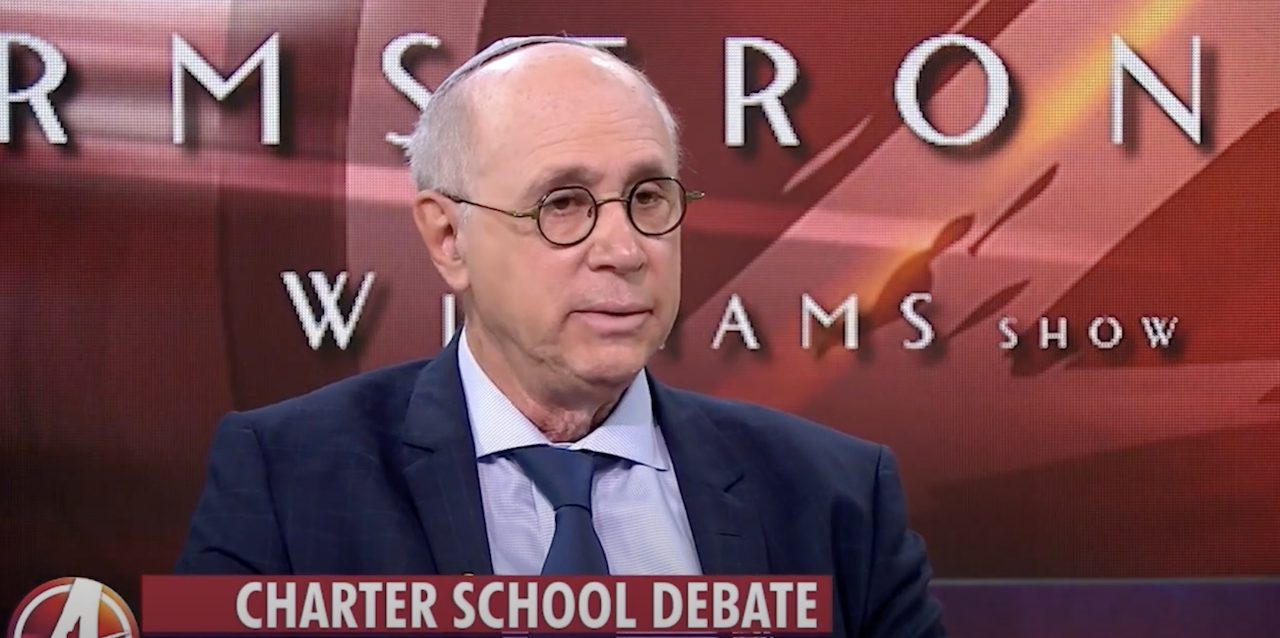Does God Have a Favorite in the Belmont Stakes?
Chanukah
December 12, 2015
I want to share with you an explanation I wrote of the Chanukah story which puts it in contemporary terms.
When the Macabees, or as they were called by some, the HUCKABEES, came marching into Jerusalem they went up the HILARY to the temple, and found that the SANTORUM had been desecrated by the Syrians. The first thing they decided to do was to dedicate and re-CHRISTIE it so they could use it again for their worship.
They looked all over for the objects necessary to perform this task. They looked in the trees and SANDERS nearby. They even searched under a BUSH by the Temple, all to no avail. Just as they were about to give up hope, they found a tiny CRUZ of oil that was supposed to last only one day. Now this oil lamp was not the kind that you would RUBIO and a genie would come out. In fact the oil wasn’t at all like the kind we have today. It wasn’t oil that could be used to run your CARSON or CARLY. Nor could it be used to RANDomly PAUL tractors.
To the surprise of all, the oil burned for 8 days, longer than anyone anticipated, and thereby TRUMPED all bets as to how long it would last!
The holiday has several aspects which distinguish it and make it unique among all our holidays. In addition to being post-biblical, it also is unique because it is the only of our holidays to celebrate events which took place in Eretz Yisrael, the land of Israel. Passover occurred in Egypt. The other two festivals, Sukkot and Shavuot took place in the Sinai dessert, and the holiday of Purim celebrates events that happened in Persia.
As Ambassador Ron Dermer pointed out the other characteristic that makes the holiday different is that the Maccabees were fighting not for the physical survival of the Jewish people, but for the spiritual triumph and endurance. As my 6 year old granddaughter told me the other day, “The Greeks did not allow the Jews to study Torah or to daven.”
Chanukah celebrates the victory of the few over the many, of a tiny minority against the mighty. The Chanukah menorah represents not just this holiday, but is an appropriate symbol and metaphor for the Jewish people and the course of Jewish history. When the people thought there was enough oil to only last a day, each day it continued burning was greeted with joy. They did not take anything for granted. Each day was considered a miracle. The lamp continued to burn, tenaciously hanging onto life and refusing to go out. As a cancer survivor, I take this message to heart, as should all of us.
Just as today and throughout the ages – in conditions of adversity and during times of prosperity, we strive to continue to live and practice our traditions we should work to let the light of Judaism shine in our homes and in our world.
The battle waged by the Macabees and their followers was for the right to continue to practice Judaism. It was a resistance to the imposition upon them of the hedonistic and pagan Greek religion and culture, a way of life they rejected. At a time when the entire civilized world was enamored by Greek ways, the tiny group of Jews was willing to stand up and proclaim they wanted to maintain their way of life.
Just the other day the Catholic Church officially expressed its rejection of all attempts to convert Jews. We may not realize how earth shattering a theological statement that is for the Catholic Church to make. For two thousand years, Judaism was not considered an acceptable path to God. But we did not give up or give in. And so it is because of the message of Chanukah and other holidays that we Jews historically have always rejected intolerance while practicing our unique religion. We reject tyranny because we are a people who appreciate freedom and who seek to remind the world of the evils of extremism, in all forms.
This is why the story of Chanukah is so important and why we must ensure the survival of Judaism. The Macabees fought so Jews could practice their faith even if it was not the same as the overwhelming majority. They wanted to preserve the freedom, the freedom to be different – for others, as well as for us.
We are commanded lefarsem et haNes: to publicize the miracle, meaning the message of the miracle of Chanukah should not be hidden, or something for us alone. It is to be shared with all. We must keep in mind that the freedoms they fought for are freedoms not just for us, for we have always worked so they would be granted to all. In an increasingly intolerant and polarized world, let us embrace the message of tolerance, of preserving liberty and of respect for the other, which also entails the message of preserving that which is distinct and unique to Judaism.
Also published on Medium.




